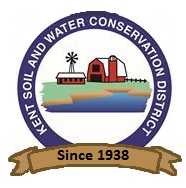WASHINGTON, Jan. 13, 2022 – The U.S. Department of Agriculture today announced up to $225 million in available funding for conservation partners through the Regional Conservation Partnership Program (RCPP). RCPP is a partner-driven program that leverages collective resources to find solutions to address natural resource challenges on agricultural land. This year’s funding announcements include opportunities for projects that address climate change, benefit historically underserved producers and support urban agriculture.
There are two types of funding opportunities under RCPP: RCPP Classic and RCPP Alternative Funding Arrangements (AFA). RCPP Classic projects are implemented using NRCS contracts and easements with producers, landowners and communities, in collaboration with project partners. Through RCPP AFA, partners have more flexibility in working directly with agricultural producers to support the development of new conservation structures and approaches that would not otherwise be available under RCPP Classic. Project types that may be suited to AFA, as highlighted by the 2018 Farm Bill include:
- Projects that use innovative approaches to leverage the federal investment in conservation.
- Projects that deploy a pay-for-performance conservation approach.
- Projects that seek large-scale infrastructure investment that generate conservation benefits for agricultural producers and nonindustrial private forest owners.
USDA is accepting project proposals for both components of RCPP through 11:59 p.m. on April 13, 2022. View the funding opportunity on grants.gov
Farmers and forest landowners to submit applications for current Regional Conservation Partnership Program (RCPP) projects available in Maryland. Landowners may apply for conservation funding at any time throughout the year, but funding selections are made at specific times.
Also, Maryland currently offers RCPP in selected areas across the state through eight projects that range in focus, from animal waste management practices, to streamside buffers, to wildlife habitat restoration.
The following projects currently have funding available in Kent:
Accelerating Chesapeake Bay Watershed Implementation Plans: Offered in partnership with the Maryland Department of Agriculture, this project addresses animal waste management concerns in the Chesapeake Bay watershed and helps farmers implement practices to avoid winter application of manure. Producers that are interested in waste storage facilities, pumping plants, heavy use areas, and solid/liquid waste separation facilities are encouraged to apply.
Engaging Small AFO’s in the Nutrient Management Process: This project seeks to reduce nutrient and sediment loss associated with small dairy AFOs by encouraging the development and implementation of CNMPs. It is available state-wide to small dairy operations interested in developing comprehensive nutrient management plans and implementing plan practices, including: waste storage structures, animal mortality facilities, heavy use areas, barnyard runoff practices, animal exclusion practices, and enhanced nutrient management (such as manure injection), among others.
Meeting WIP Goals in the Chesapeake Bay: Offered in cooperation with the Maryland Association of Soil Conservation Districts, this project seeks to accelerate the installation of best management practices to enable Maryland farmers to meet the nutrient and sediment water quality goals set forth in the Chesapeake Bay TMDL. It is available to producers in Cecil, Kent, Queen Anne’s, Caroline, Talbot, Dorchester, Wicomico, Somerset and Worcester, Washington, Frederick, Howard and Montgomery counties who are interested in animal waste storage, stream fencing, heavy use areas, liquid separation technology, and advanced nutrient management practices.
Taking Soil Health in Maryland to the Next Level: This project supports conservation practices that enhance soil health and improve both air quality through increased carbon sequestration and water quality through increased efficiency of nutrient use and water management. Conservation practices include adaptive nutrient management, cover crops, crop rotations, variable rate technology, residual and tillage management crop rotations, precision farming, edge of field tools, composting, forest and biomass planting and other practices supportive of soil health.
Chesapeake Bay Farm Stewardship and Preservation: The Chesapeake Bay Farm Stewardship and Preservation project supports a diverse three-state partnership to accelerate the adoption of precision nutrient management and soil health practices. Financial and technical assistance will be focused where practices will have the greatest impact on Chesapeake Bay water quality; farmers have demonstrated enthusiasm for these practices; partner outreach and education and technical assistance efforts support financial assistance delivery; and prime farmland is located.
